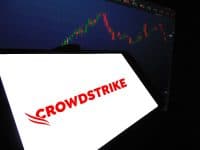What happens when one merger takes place? It begets other related mergers, or at least traders and investors will flock to those secondary beneficiaries as a result. With the unexpected buyout of OpenTable Inc. (NASDAQ: OPEN) by Priceline Group Inc. (NASDAQ: PCLN), suddenly the attention has turned to Yelp Inc. (NYSE: YELP).
What 24/7 Wall St. would advise readers to consider is that OpenTable and Yelp are very different companies. Priceline bought OpenTable because it generates revenues and profits. Revenue was $190 million in 2013 and profit was $33.4 million. Net income was almost $24 million in 2012 and $21.5 million in 2011. Thomson Reuters expects revenues to be more than $225 million in 2014 and more than $262 million in 2015.
The good news is that a buyout of OpenTable does make Yelp more attractive. Even after a 46% jump in the price, OpenTable’s market cap is $2.4 billion. After a 12% jump in Yelp shares, its market cap is more than twice OpenTable’s market cap, with a value of close to $5.3 billion. That is where the similarities stop.
Yelp is heavily dependent on Google and mobile search. Its revenue was almost $233 million in 2013, but the company lost $10 million in that year. Yelp also lost money in the prior two years. Thomson Reuters expects Yelp to have sales of almost $366 million in 2013 and $524 million in 2015. While it is growing sales faster, Yelp is expected to have a small loss yet again in 2014 and not post a profit until 2015.
The other thing to consider about Yelp is that, trading at just over $74, it has a consensus analyst target of just over $83, and the 52-week range is $29.26 to $101.75.
ALSO READ: Five Top Restaurant Stocks That Are Hot Summer Buys
OpenTable requires a system for restaurants to use for reservations. Restaurants get reviewed on Yelp. The companies seem very different, but the reality is that either could directly target the other with limited effort if they wanted to.
It doesn’t seem right that Priceline would dare turn OpenTable into a “Name Your Dinner Price” service. That being said, we would attribute the move higher in Yelp as a sympathy move rather than creating an imminent move forcing a buyer to gobble Yelp up into the larger company. If Yelp was wildly profitable, that might be a different matter.
One last note on Internet mergers: anything is possible. It seems hard to imagine that a new web buyer would pay up this much for a company losing money and at close to 10 times forward revenues, but anything is possible. Guys named Zuckerberg and Bezos, or Sergey and Larry, and others have proven over and over that they will pay up for an asset if they think it will dominate in the years ahead — and the path to profitability is often an afterthought.
ALSO READ: States With the Highest (and Lowest) Taxes
Thank you for reading! Have some feedback for us?
Contact the 24/7 Wall St. editorial team.





